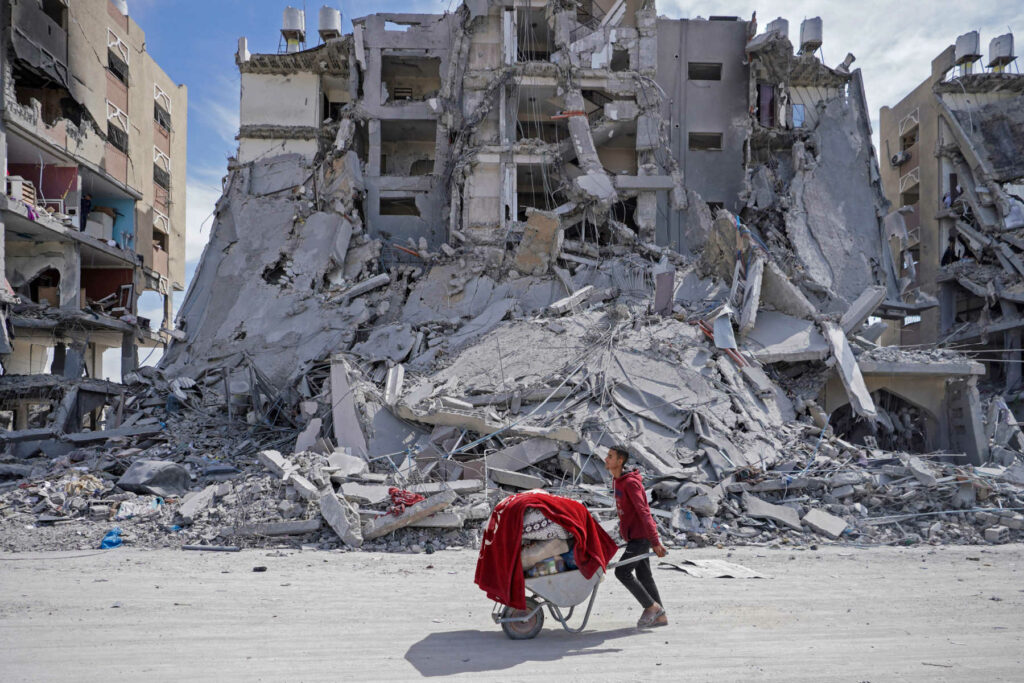Vaheed Ramazani is Professor Emeritus of French Literature at Tulane University, where he held the Katherine B. Gore Chair in French Studies. He is the author of three books, most recently Rhetoric, Fantasy, and the War on Terror (Routledge, 2021).
In his 2021 book Rhetoric, Fantasy, and the War on Terror, on the discourses mediating and justifying the forever wars that followed 9/11, Vaheed Ramazani writes: "If the election of Donald Trump to the U.S. presidency seems to have ushered in our 'post-truth era'… we would do well to recall that the habitual unmooring of signs from any reference to semantically coherent contexts or to empirical facticity was already well under way with the George W. Bush administration, where the abuse of signification arose, for example, in the tortured reasoning of the 'torture memos,' the deliberately misleading association of Al Qaeda with the Iraqi Baathist regime, a war of choice masquerading as preemptive self-defense, and the legally incoherent designation 'unlawful combatant.'"
His new poem "Civilian Targets" channels that same scholarly excavation of how "different kinds of visual and verbal rhetoric came to naturalize the fantasy of a global War on Terror," but the context here is not "a hybrid military and policing operation with no temporal or spatial limit, a 'war' conducted anywhere and everywhere (including inside the Homeland itself), and announced to last, if need be, forever." Instead, the context is Gaza and Israel's devastating war of collective punishment following the Hamas-led attack of October 7, 2023—an event likened by some to "Israel's 9/11." Like 9/11, which Ramazani described as "a signifier intended to fix in public memory the singular atrocity of a particular moment, an epochal event unlike any other," 10/7 in Israel quickly became the justification for any and all action in Gaza—war crimes, crimes against humanity, even genocide.
His poem, published in Democracy in Exile for the first time, strips away the rhetoric of war, with the matter-of-factness of a news report that doesn't hide behind its own language or shy away from saying exactly what has happened.
—Frederick Deknatel, Executive Editor

Civilian Targets
Some forty-five civilians
had been residing
in the three-story house in Rafah
when it was destroyed by an Israeli air strike
at 11:45am on December 14, 2023.
The owner of the house, Abdallah Shehada,
a 69-year-old retired surgeon,
died in the attack,
along with
eleven children,
eight men,
eleven women.
Their bodies
were torn to shreds.
At least ten others were wounded—
"wounded,"
a euphemism for
dismemberment,
burnt flesh,
severed spines,
crushed bones,
brain injuries,
life-long mental trauma
etc.
Ahmad Nasman, a physiotherapist,
was among the few to survive
that morning's attack.
It took Ahmad
four days
to extract the body
of his 3-month-old daughter,
Ayla Nasman,
from under the rubble.
(She was recognizable
only by her clothes.)
His five-year-old daughter,
Awra,
was decapitated by the blast.
Investigators have found no evidence
of a legitimate military objective
in or near
the targeted home.







































